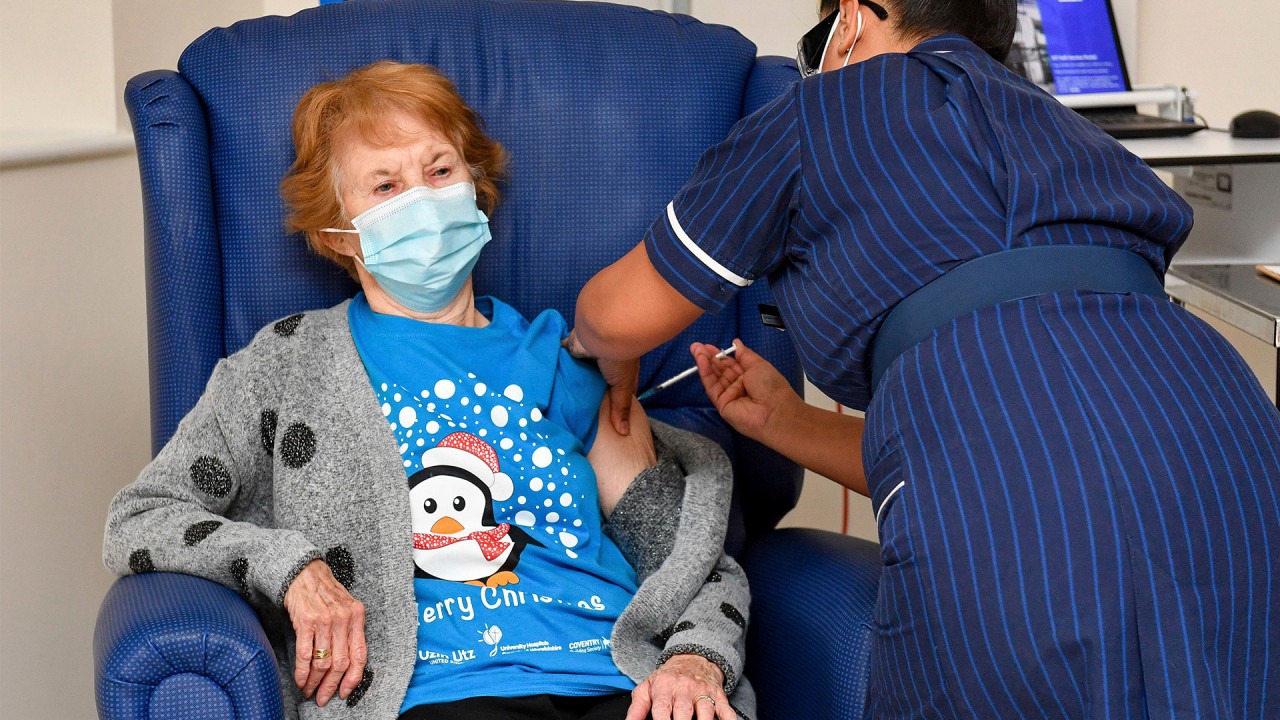Covid-19 vaccines are on the way. But making them compulsory will only backfire
- Transparency is the best way to counter public mistrust and misinformation spread by anti-vaxxers
- It may be too early to say whether the 95 per cent efficacy rates reported for some drugs will last

The United Kingdom began its Covid-19 vaccination programme on Tuesday, the first Western country to do so, but with many parts of the world, including Hong Kong, likely to follow, a debate has started about whether to make the jabs mandatory.
Advocates of mandatory vaccination may not be aware of what type of authorisation has been given to the vaccine used in the UK, developed by Pfizer and BioNTech, and what we know so far.
British regulators granted emergency use licensing last week, allowing the health authorities to start inoculating high-risk groups.
The authorisation is in accordance with the interim results of the final clinical trials – which showed an impressive 95 per cent efficacy rate – but these findings are based on less than four months of data.
Scientists are uncertain if the efficacy rates will decrease over time, a concern that also applies to vaccines developed by Moderna and Oxford University/AstraZeneca. No efficacy data has yet been provided for the vaccines developed in China.
Nor have the trials finished. Vaccine developers typically monitor two years’ safety data, but currently scientists only know what happened two months after people were given the second shot.
A vaccine that proved safe for tens of thousands of volunteers – 38,955 people in the case of Pfizer – does not mean there will not prove to be rare side effects when given to millions of people from different age groups and ethnicities.
Any public concern about the short development time for the vaccines is likely to be amplified by misinformation spread by anti-vaxxers.

00:54
Coronavirus vaccine: ‘Go for it’ says 90-year-old UK grandmother after getting first Pfizer shot
However, the World Health Organization has urged public health authorities to counter misinformation with transparency – for example, the US Food and Drug Administration’s discussions about the Pfizer drug will be broadcast live on Thursday – and warned that making vaccination mandatory is only likely to strengthen public opposition.
In any case, vaccines cannot end the pandemic next year. The public should be given time to observe how well they work and make their own choices.
If the vaccines are good, people who long to travel and resume business will of course be happy to take them.
Public scrutiny of a voluntary programme will help the authorities and drug makers to become more transparent and improve the second generation of vaccines.
How well regulators handle the vaccination and vaccine approvals will affect public confidence in the long term – how people perceive future Covid 19 vaccines and vaccines for future epidemics. Vaccines are not face masks that you can take off when you come home, but for life.